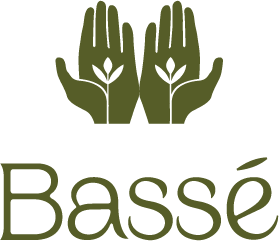Blog

Ibogaine Therapy for Addiction: An Evidence-Based Alternative Treatment
Addiction is one of the most complex and deeply personal struggles a person can face, affecting millions worldwide (and nearly 17% of the population in the United States alone). Addiction is not a bad habit or a behavioral choice—it is a complex, chronic condition that alters brain function, driving chemical, biological, and compulsive patterns of dependency that can feel impossible to break—even for those with the best intentions and strongest determination.
While traditional treatments like 12-step programs and pharmaceutical drugs help many find relief, others find that these approaches fail to address the root causes (of substance dependency or compulsive behaviors. Evidence-based alternative treatments for addiction like Ibogaine therapy offer a revolutionary approach—one that goes beyond symptom management to create lasting neurobiological and psychological change—providing both hope and tangible results for individuals grappling with addiction, as well as for the loved ones who have walked this harrowing journey alongside them.
Derived from the root bark of the Tabernanthe iboga plant, Ibogaine is a naturally occurring psychoactive alkaloid traditionally used in ceremonial contexts by Indigenous Bwiti practitioners of Central Africa. Now, Ibogaine is capturing the attention of researchers and treatment providers for its ability to disrupt the cycles of addiction, alleviate withdrawal symptoms, promote long-term nervous system regulation, and restore the brain to its pre-addictive state. Medical Ibogaine treatment is an effective, cutting-edge, research-based alternative to traditional addiction recovery methods.
The Neurobiology of Addiction: Why Quitting Feels Impossible
For those who have never struggled with substance dependency, addiction might seem like a failure of willpower. In reality, it is a neurobiological condition that rewires the brain’s reward system, impulse control, and emotional regulation.
Substances like opioids, stimulants, and alcohol flood the brain with dopamine, the neurotransmitter responsible for pleasure and motivation. Over time, the brain becomes dependent on external dopamine sources, reducing its natural production and weakening self-regulation—the ability to manage impulses, balance emotions, and resist compulsive behaviors. As dopamine levels drop, intense cravings emerge as the brain desperately seeks to restore what it perceives as ‘normal’ functioning. This neurochemical shift fuels compulsive substance use—not just for pleasure, but to avoid the severe effects of withdrawal—reinforcing a cycle that feels impossible to break.
Beyond neurotransmitter disruption, addiction alters neuroplasticity—the brain’s ability to rewire and heal. The more an individual engages in substance use, the stronger these maladaptive pathways become, making it harder to unlearn addictive behaviors. Without intervention, the brain remains trapped in this cycle, prioritizing substance-seeking over rational decision-making, emotional regulation, and even survival instincts.
This is why even those deeply motivated to quit often relapse—their brains have been rewired to prioritize substance use above all else. Addiction is not a moral failure; it is a medical condition with biological underpinnings.
The Science: How Ibogaine Breaks the Cycle of Addiction
What sets Ibogaine apart from traditional treatments that only manage symptoms is its ability to break the cycles of addiction on multiple levels. Often described as a ‘reset button’ for the brain, Ibogaine interacts with complex neural systems to target both the physical and psychological aspects of dependency, facilitating a more comprehensive healing process.
Alleviating Withdrawal Symptoms
One of the most significant barriers to sobriety is withdrawal, which can involve severe nausea, debilitating body pain and tremors, severe anxiety, and intense cravings. Ibogaine therapy significantly reduces withdrawal symptoms associated with addiction, often within 24 hours, allowing individuals to rapidly transition through detox with far less discomfort.
- A study published in Frontiers in Pharmacology found that Ibogaine therapy significantly diminished opioid withdrawal symptoms and reduced drug cravings, with effects persisting for at least one month post-treatment.
- Another study published in The American Journal of Drug and Alcohol Abuse observed that a single Ibogaine treatment not only alleviated withdrawal but also led to sustained reductions in opioid use over a 12-month period, particularly in individuals for whom other treatments had failed.
- Yet another study published in The Journal of Substance Abuse Treatment documented that Ibogaine was associated with long-term decreases in drug cravings and substantial improvements in withdrawal symptoms, providing individuals with a critical window of clarity to begin their recovery process and make meaningful, lasting changes.
Restoring Dopamine, Serotonin Production and Neuroplasticity
Beyond easing withdrawal, Ibogaine therapy works at the molecular level to restore balance in the brain’s dopamine and serotonin systems—two neurotransmitters that become severely disrupted by long-term substance use or compulsive behavior.
- Restoring dopamine and serotonin: These neurotransmitters regulate pleasure, motivation, and emotional stability. When depleted, they contribute to depression, anhedonia (inability to feel pleasure), and increased relapse risk. Ibogaine “resets” these systems, helping the brain return to a more balanced, pre-addictive state.
- Enhancing neuroplasticity: Ibogaine increases the production of brain-derived neurotrophic factor (BDNF) and glial cell line-derived neurotrophic factor (GDNF)—proteins essential for the formation of new nerve cells and neural pathways, which improves cognitive function, emotional regulation, and impulse control—all of which are disrupted by addiction. By promoting neuroplasticity, Ibogaine helps individuals break compulsive substance use patterns and form healthier behaviors.
This neurochemical reset plays a critical role in long-term recovery, allowing individuals to rebuild their motivation, decision-making skills, and stress response systems—key factors in sustained sobriety.
Trauma Healing: The Root Cause of Addiction
Addiction is often deeply intertwined with unresolved trauma, unprocessed emotional wounds, and psychological distress. As world-renowned physician and addiction expert, Dr. Gabor Maté insightfully states, “The question is not why the addiction, but why the pain. Addiction is a response to human suffering.” Many undergoing Ibogaine treatment for addiction recovery report experiencing introspective visions that allow them to revisit pivotal life moments from a detached, non-reactive, observer-like state. This “witnessing” experience enables confrontation of past trauma, understanding of emotional triggers, and reprocessing of memories without re-traumatization.
A Stanford University study involving veterans with traumatic brain injuries and PTSD found that Ibogaine therapy led to significant reductions in PTSD, depression, and anxiety symptoms, suggesting profound psychological healing. These findings align with reports that Ibogaine therapy offers rapid and robust improvements in mental health, potentially due to its facilitation of deep psychological processing. By addressing the underlying pain fueling addictive behaviors, Ibogaine therapy provides individuals with a profound understanding of their actions, paving the way for lasting recovery.
One client who had struggled with severe heroin addiction described their experience as “the first time I truly understood why I kept numbing myself with drugs. It wasn’t about the substances—it was about the pain I never dealt with. Ibogaine showed me the truth, and for the first time, I had clarity.”
The Bassé Difference: Why We’re the #1 Choice for Safe and Effective Ibogaine Treatment
While Ibogaine therapy offers groundbreaking benefits and Ibogaine treatment for addiction shows immense promise, it is not without risks, and a single treatment is not a one-size-fits-all cure.
The Importance of Medical Supervision for Ibogaine Therapy
Ibogaine treatment should always be administered in a medically supervised setting. Without proper medical oversight, Ibogaine can pose serious health risks due to its effects on the cardiovascular and nervous systems. At Bassé, we prioritize safety above all else, which is why every client undergoes a rigorous screening process, including:
- Electrocardiograms (ECGs) to assess heart health
- Mental health evaluations to screen for psychiatric conditions such as schizophrenia or psychosis
- Substance use history assessments to determine the proper pre-treatment protocols
In addition to comprehensive medical screening, the Bassé treatment includes [insert personalized pre-treatment approach, such as detox protocols, dietary recommendations, and psychological preparation], ensuring that your body and mind are fully prepared to receive the benefits of Ibogaine.
Our expert medical team is equipped with [insert specialized medical staff, safety protocols, and experience] to ensure that each client’s Ibogaine treatment is conducted in the safest possible environment—minimizing risks while maximizing therapeutic benefits.
Beyond the treatment itself, our program provides immediate integration support post-treatment, along with continued guidance in the critical weeks that follow. This ensures that the insights and neurological reset achieved during Ibogaine therapy translate into lasting transformation and long-term recovery.
Integrating Ibogaine Therapy with Long-Term Recovery Practices
Long-term sobriety and lasting healing require ongoing integration work to ensure that the neurological and psychological changes initiated by Ibogaine therapy are sustained. At Bassé, we recognize that true transformation extends beyond the Ibogaine treatment itself, which is why our team is trained in various somatic (body-based) therapies. Each client is introduced to mindfulness practices, integrative bodywork, and trauma renegotiation therapies both during and after their Ibogaine treatment at Bassé to reinforce the neural pathways formed during Ibogaine therapy and reduce the risk of relapse.
One veteran, who had suffered from opioid addiction and PTSD, found that combining Ibogaine therapy with somatic therapy allowed them to regulate their nervous system and fully integrate their emotional healing, leading to sustained recovery and lasting change.
Ready to Get Started?
If you or a loved one are considering Ibogaine therapy for addiction recovery, don’t put your safety in the hands of unregulated clinics or informal retreats. At Bassé, we promise that your Ibogaine experience is not only safe but also profoundly healing.
Contact us today to learn more about evidence-based Ibogaine therapy.
